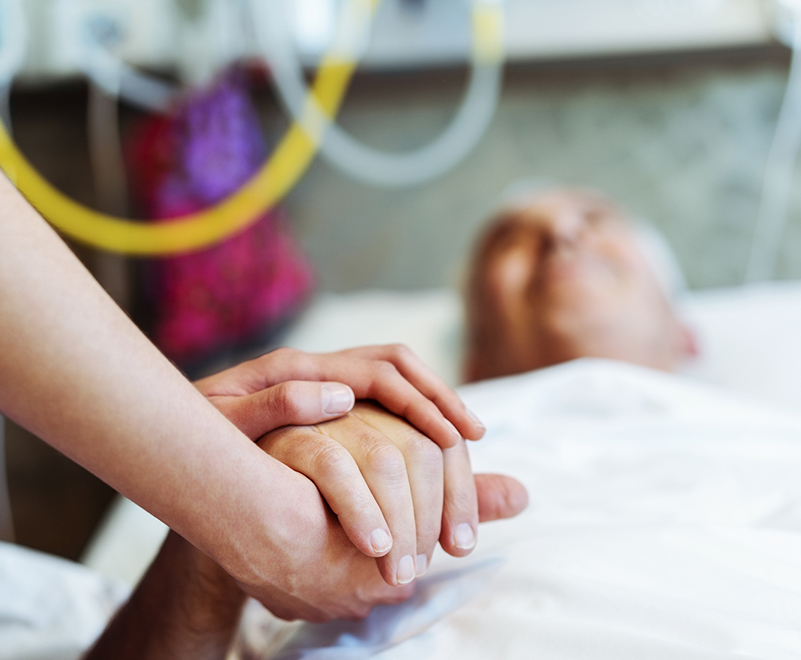Interventional Cardiology Training Program

In This Section:
- Program Overview
- Objectives
- Program Organization
- Curriculum
- Required Conferences
- Teaching/Learning Activities
- Facilities
- Evaluation
- Support
- Benefits
Program Overview
The goal of the Johns Hopkins Interventional Cardiology Training Program is to provide the highest quality training in the field of Interventional Cardiology. Trainees will develop and demonstrate competence in the clinical knowledge, procedural skills, clinical judgment, professionalism, and interpersonal skills required as a specialist in Interventional Cardiology. At the completion of the training program, the trainee will have acquired the competency to pass the appropriate specialty boards required to practice independently as a specialist in the field
Trainees planning to do coronary or other cardiovascular interventional procedures must also have knowledge of the indications, limitations and complications of these procedures as well as an in-depth understanding of the specialized equipment needs. In addition to basic training in coronary angioplasty, trainees must obtain specialized experience in the performance of specific interventional therapeutic and diagnostic procedures.
Objectives
Fellows receive training and supervised experience in the evaluation and management of a patients with a wide variety of acute and chronic cardiovascular conditions, including patients with the following cardiac conditions:
- Coronary artery disease
- Valvular heart disease
- Cardiomyopathy
- Pericardial disease
- Peripheral artery disease
- Adult congenital heart disease
- Aortic disease
Program Organization
This one-year program complies with all ACGME requirements, in addition to following the guidelines and recommendations of the American College of Cardiology (COCATS).
At the end of the training period, Fellows will be equipped with the knowledge, skills and abilities to meet the requirements for certification in interventional cardiovascular diseases, as determined by the Accreditation Council for Graduate Medical Educational and the American Board of Internal Medicine.
Curriculum
During the year-long of the program, fellows are provided instruction and experience in patient care and management, diagnosis, the prevention and treatment of cardiovascular disease and related sciences: (See attached specific curriculum for specific curriculum information).
Required Conferences
All fellows are required to attend the Morbidity and Mortality Conference (M&M) on Thursday mornings, which includes film review, journal club in addition to quality improvement discussion.
Numerous other Divisional conferences are held on a continuing basis, including electrocardiogram conference, echo conference, clinical correlative conference, and subspecialty conferences in electrophysiology, interventional cardiology, preventive cardiology, and heart failure/transplantation. In addition, journal club, combined cardiology-cardiothoracic surgery conference, advanced imaging. Fellows are encouraged to attend as interest and time dictate.
Teaching/Learning Activities
All teaching activities are carried out by the faculty of The Johns Hopkins University School of Medicine. Faculty members are all board certified in Cardiology and all key faculty are boarded in Interventional Cardiology. The ratio of key faculty to fellows is 2:1
All faculty are expected to demonstrate the highest standards of patient care, scholarship and clinical knowledge in their capacity as educators and role models for the trainees. Because the Division of Cardiology is directly affiliated with the Department of Medicine and training programs in both Internal Medicine and Cardiovascular Disease, Fellows are able to maintain their skills in the aspects of general internal medicine and those that relate to Cardiology. They will interact closely with the medicine residents and interns as they rotate through the Interventional Cardiology service. Fellows will also maintain close working relationships with faculty and Fellows in other divisions of Medicine and in other departments in their role as consultative physicians. They will also work closely with technicians, physician assistants, nurses and other staff in the division.
Fellows also participate in a weekly outpatient clinic during their year of their training. This important aspect of the training will allow Fellows to apply what they are learning in their clinical training to the actual practice of medicine, under the guidance and supervision of their clinical mentor. Fellows may set up their outpatient clinic with the clinical mentor of their choice at the Johns Hopkins Outpatient Center or at the Bayview Medical Center. Approximately 140 patients are seen each month in the division’s fellow clinics.
Facilities
Learning activities take place at the East Baltimore Campus at the Johns Hopkins Hospital. The Hospital has approximately 1040 acute beds. The Johns Hopkins Hospital Cardiovascular Diagnostic Laboratory (CVDL) is a state of the art imaging facility performing over 24,000 diagnostic and interventional procedures annually. The CVDL operates eleven procedure rooms. There are three general areas within the CVDL: Cardiology, Radiology, and Electrophysiology. The Cardiology Section is involved in treating patients with disorders of the heart and vascular tree including coronary artery disease, congestive heart failure, valve disease, congenital heart defects, cardiomyopathy, and peripheral vascular disease.
The patient population seen at Hopkins provides a broad range of cardiovascular disorders. In addition to patients from the surrounding area, Hopkins attracts patients from a worldwide catchment area. Patients are seen on a referral basis from the Johns Hopkins Emergency Department, other services within the hospital, and from physicians in the Mid-Atlantic community and beyond. In the course of their training, Fellows will see virtually every known form of adult cardiovascular disorder.
Evaluation
We feel strongly that frequent evaluation and constructive feedback are essential for Fellows to learn and grow during their training. It is therefore imperative that rotation directors discuss goals and learning objective at the start of each rotation. They must also provide feedback and discuss performance with each Fellow, particularly at the end of the evaluation period.
Fellow and faculty evaluations are officially documented quarterly using the web-based evaluation system E*Value. The emphasis of the E*Value program is mutual evaluation. Fellows are evaluated by the faculty members with whom they have worked using the standard ABIM competency categories, as well as program -specific learning objectives set forth by the rotation director.
Fellows may review their evaluations and faculty feedback in the system at any time using their password to gain access to the secure program at either their personal computer or at a hospital workstation. To ensure anonymity, faculty members will receive an anonymous aggregated report once a critical mass of comments has been accumulated.
Evaluation of performance is based on the following standard ABIM Competencies: Patient Care, Medical Knowledge, Interpersonal and Communication Skills and Professionalism, as well as the learning objectives of the program as set forth by the Director.
On two occasions per year, division faculty as a whole meet to discuss the performance of trainees in each training program. The program director also completes a final evaluation for fellows who are leaving the program each year. The Program Director also monitors a procedure report to make sure that each fellow has participated in the appropriate number of required procedures.
Fellows may speak freely to the program director at anytime if they have a concern about any aspect of their training. At the end of each year, Fellows are asked to evaluate the program as a whole, and are encouraged to offer suggestions for continuous quality improvement. Comments from program graduates are solicited by means of a survey, which is sent after one year, and again after five years, asking them to evaluate their training and request their recommendations for program improvement.
Support
Fellows are not required to generate any portion of their salary. Fellows in this clinical training program are guaranteed salary support for the year and are supported by clinical funds.
Salary levels for trainees are in line with university required PGY pay scale, and are adjusted on an annual basis.
Fellows are funded to attend one major national conference per year following established University guidelines for reimbursed travel. Travel grants are also made available by several pharmaceutical companies, which may allow additional travel if a Fellow is presenting a paper at more than one professional meeting.
Also provided is a common room, dedicated exclusively to Fellows' activities. This room includes individual workspaces, a locker for each fellow and several computers and printers. Fellows may join the Cooley Athletic Center for a nominal monthly membership fee. On-site parking in the Hospital garage is provided free of charge.
Benefits
All Fellows are provided with individual health insurance, dental insurance, a term-life insurance policy, and disability coverage. Information regarding benefits is distributed by the Office of the Registrar in the School of Medicine . Fellows may also elect to contribute to a pre-tax voluntary retirement fund (403-b). On-site day care facilities are available to Fellows with children. Fellows are also eligible for paid maternity, paternity, and parental leave.
Johns Hopkins also recognizes that the intensity of a training program can be a time of high stress to fellows and their families. Assistance in dealing with the many issues related to work or personal life can be obtained through mySupport, a free and confidential referral service. There is a strong sense of collegiality and family within the Division. Fellows are an integral part of our divisional activities. The activities of the Fellows are structured mainly by their educational needs, and not by the service needs of the Division.
Currently our program accepts two Fellows each year, with many fellows coming to the program directly from our general cardiology training program.
We remain committed to the highest quality of training for the Fellows in our program.

